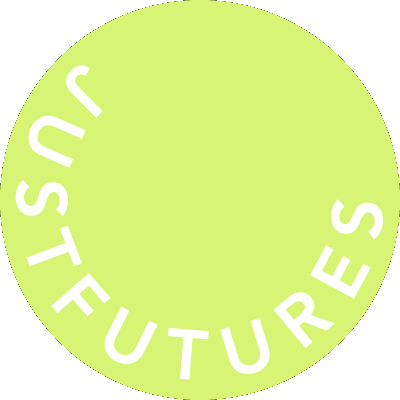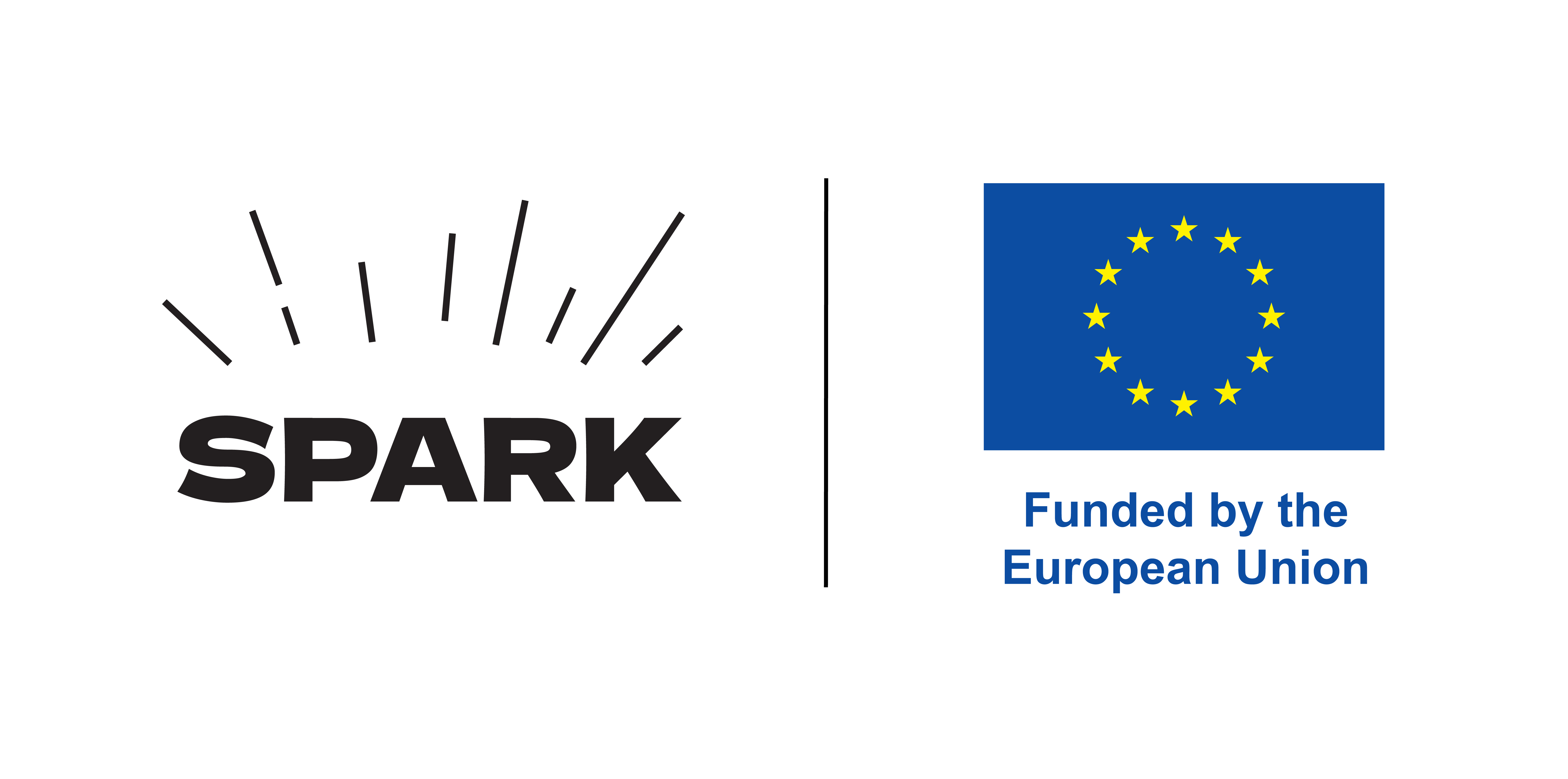Austria (Vienna)
“The future we are trying to create is a future in which people are able to find the time to get connected, to fight for a more liveable and more just world.”
Cheap flights and well-connected roads in much of Europe have made international travel more accessible, but increasingly there are calls to rethink the role of fast travel in the context of the climate emergency. The idea of slower travel has been catching on for some time. For example, internationally renowned choreographer Jérôme Bel declared in 2019 that he would no longer take flights for his work, which sparked debates about what impacts this would have in the less well-connected regions. But more than just a change in mode of transport, we need to think about how the way we travel impacts our future on the planet.
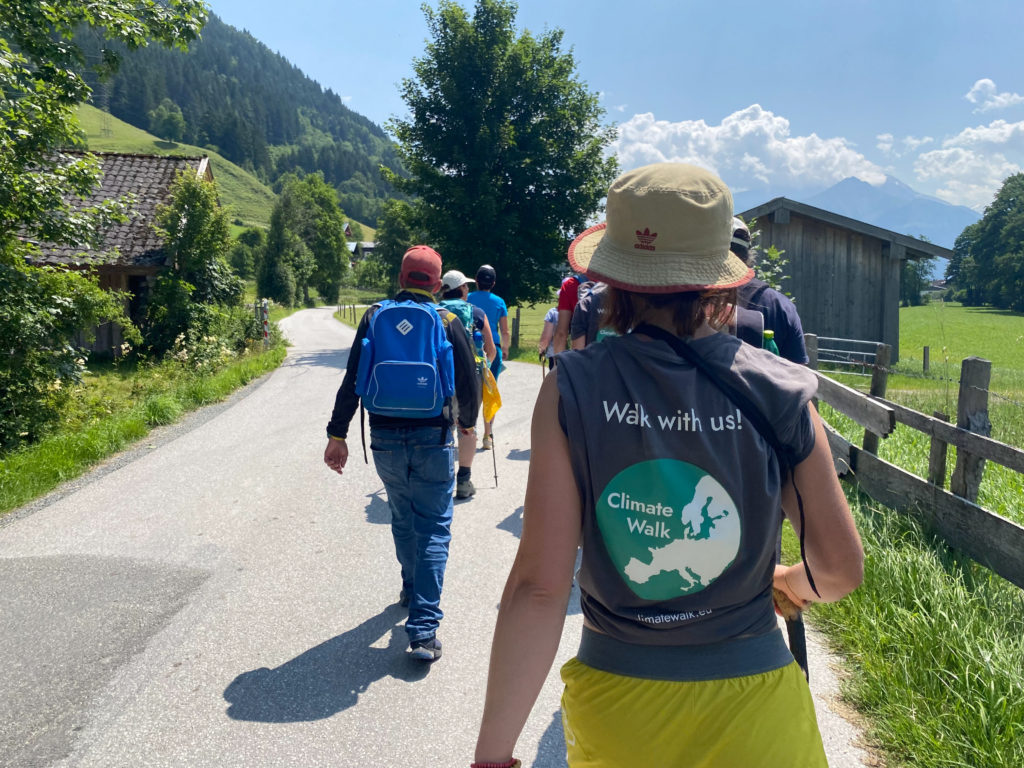
Climate Walk – Geh’ma, Austria, 2021. Image courtesy of Climate Walk.
Walking is the ultimate mode of slow travel that is open to almost everyone, and as the Wanderers of Changing Worlds explain, in a fast-paced, growth-centred society “walking means embarking on a collective journey towards a decelerated, just, solidary, and socio-ecologically friendly future for all living beings.”
The Wanders are the team of young academics, activists, artists, and (most importantly) friends behind Climate Walk, a research, education and media art project that is walking across Europe to understand regional experiences of climate change. The group explains that they chose walking as a form because “Walking fosters attentiveness, it makes one experience what it means to live in already changing environments, it makes one aware of the big and little signs of climate change,” rather than just skating over landscapes in an effort to get somewhere as fast as possible.
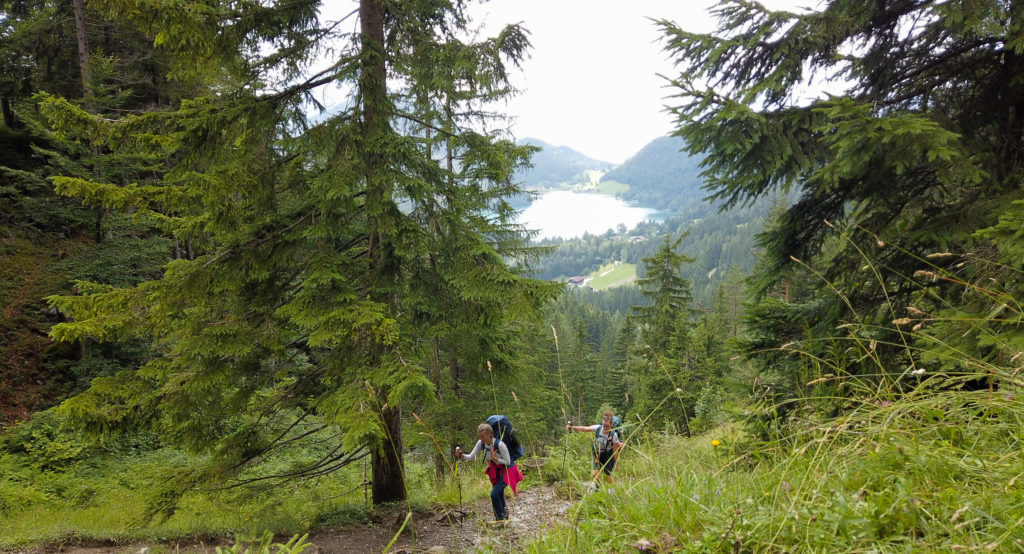
Climate Walk – Geh’ma, Austria, 2021. Image courtesy of Climate Walk.
Currently, about 15 people are working on the project, with its different dimensions: route planning, research, education and workshops, media art and outreach. Starting in June 2022, Climate Walk will walk through 18 European countries. They plan to connect individuals, local communities, and national and international organisations, bringing them together through workshops along the way.
At each stage of the project local communities can decide what the project will look like and how they’ll be involved. The Wanderers emphasise that as their project is people-centred and participatory, “it is the people who have the last say in what stories we share and re-tell.”
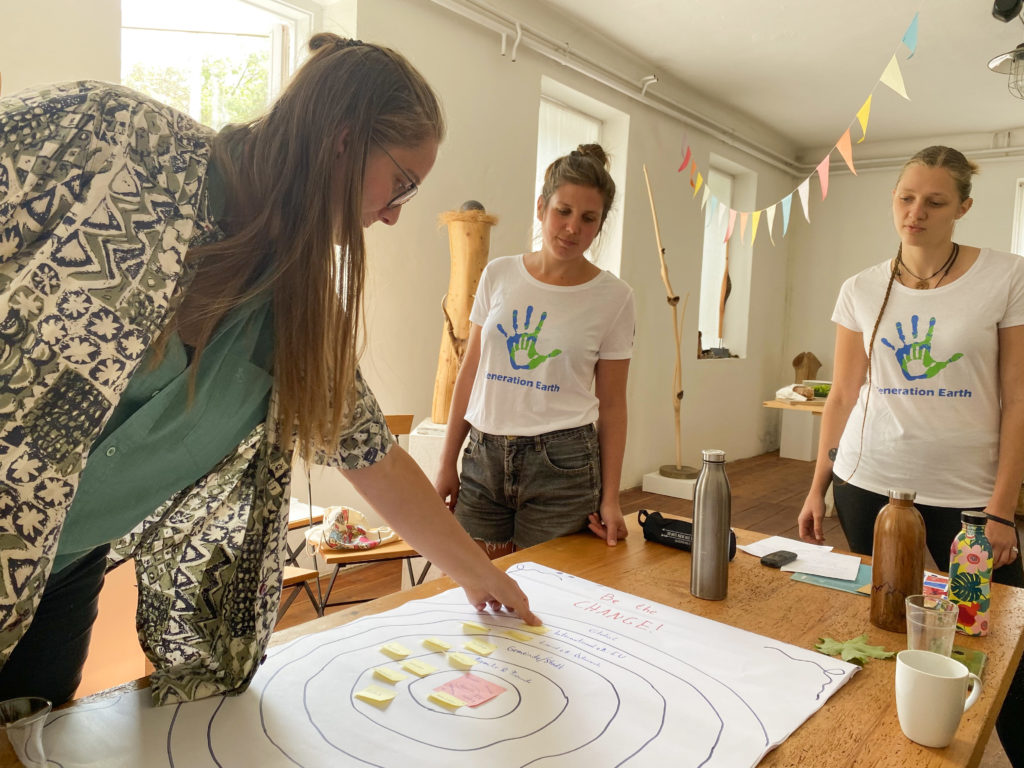
Climate Walk – Geh’ma, Austria, 2021. Image courtesy of Climate Walk.
There are two walking teams, one leaving from North Cape (Norway) on 5 June and the other from Cabo de Roca (Portugal) on 1 September. The teams will share their distinct experiences between northern and southern Europe, with each recording their journey and observations for a wider public through social media and multimedia. The two groups will eventually meet in Vienna in April 2023 and afterwards they will share local knowledge and European best-practices, to encourage people to collaborate and fight the climate crisis together.
The walk builds on the Wanders’ experience, with a previous edition in Austria in 2021. Their approach is to listen to local perspectives, learn from them, and connect these stories together to construct a holistic, people-centric understanding of the climate change phenomena.
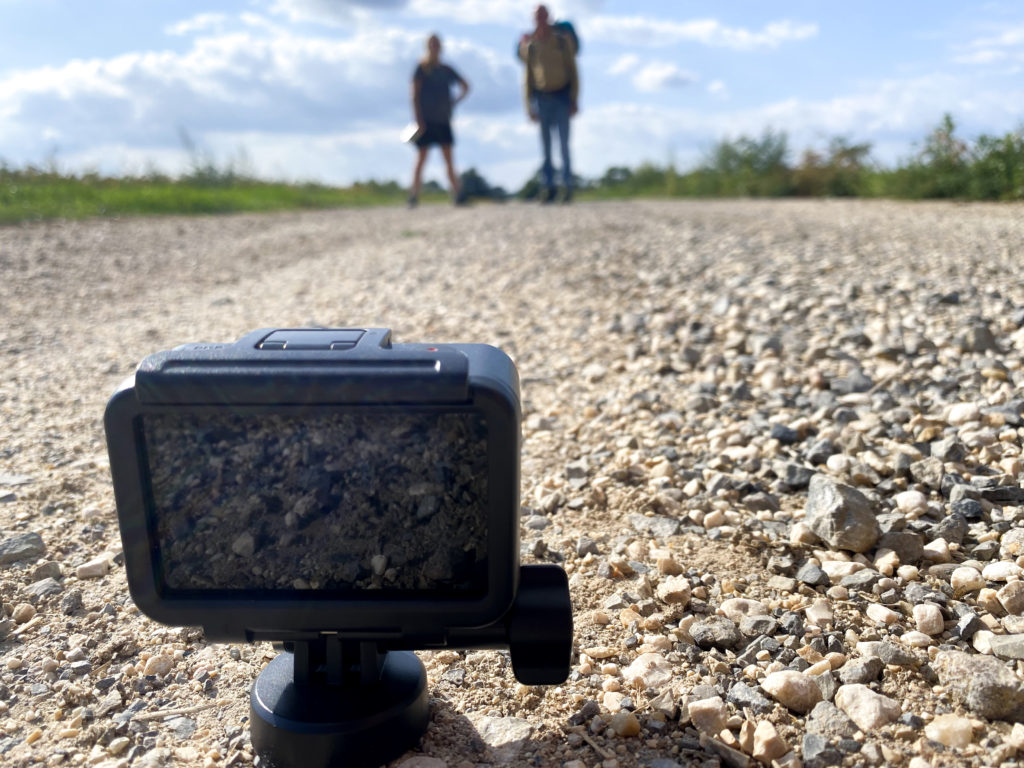
Climate Walk – Geh’ma, Austria, 2021. Image courtesy of Climate Walk.
Storytelling is an important part of the project, as it’s a way to connect with personal experiences. As the Wanderers argue, “addressing the climate crisis is not so much a question of consciousness or knowledge, but a question of being emotionally touched, moved, inspired by others and by a jointly-to-be-developed vision of a good life for all.” Using the stories and experiences of those who are already taking action is a way to reach out to as many people as possible, including those who “have not had the privilege to worry about the ecological crisis.”
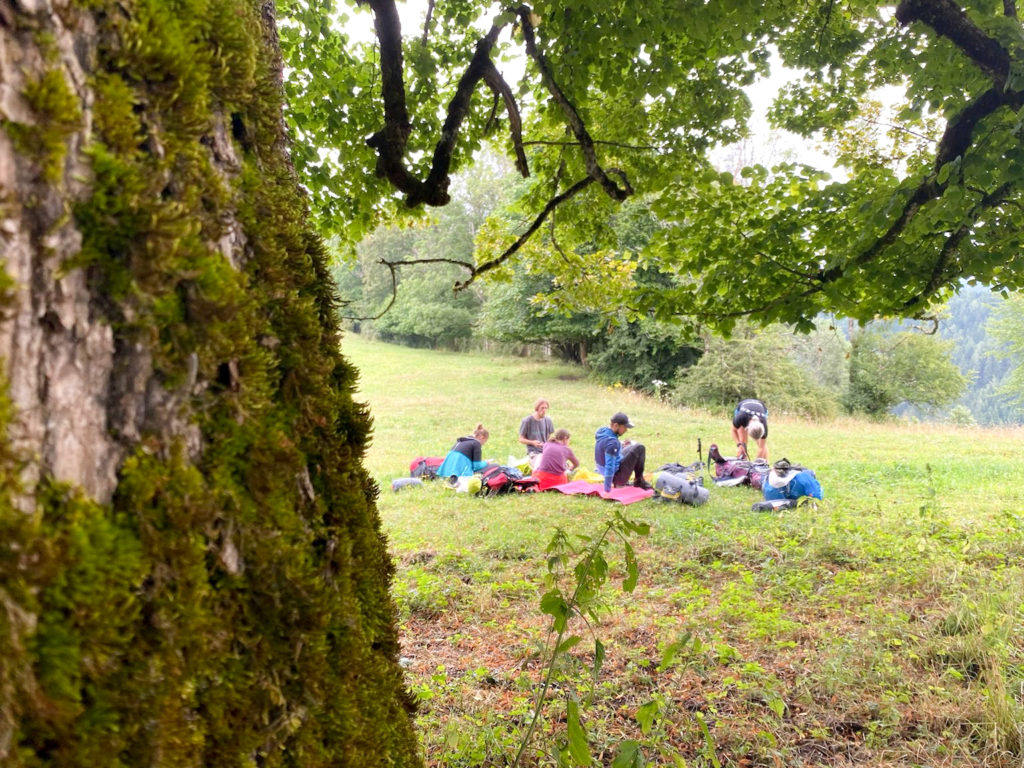
Climate Walk – Geh’ma, Austria, 2021. Image courtesy of Climate Walk.
The climate crisis is not just about the environment and, for the Wanderers, “striving for climate justice means first of all to acknowledge that the climate crisis is both a social and an ecological crisis and that there cannot be environmental justice without social justice.” We need more than just technical solutions or economic reforms, instead solutions need to address the inequalities that compound the impacts of climate change. As the Wanderers say, although the global south disproportionately suffers from climate change, “this injustice is not restricted to North–South relations in a global context, but can be found as well within Europe.”
The Climate Walk wants to investigate the ways “people disproportionately suffer from environmental degradation and social marginalisation” in the European context. And walking, a form of transport open to almost everyone, is a way to slow down and think about our impact on the world.
AtlasAction: You can donate here to the Climate Walk project, or you can support their project through participating at workshops, helping out with translations or even offering a place to sleep. You can also join in on the route, be it for one hour or several weeks. Sign up to their newsletter to find out more and follow them on Facebook, Twitter and Instagram.
Editorial note: The research and editorial support for this article was undertaken by Bianca Fiore.
Project leader
Anna Schreinlechner (Coordinator Media-Art project) and Martin Thalhammer (Coordinator Research project)
Partners
Support the Atlas
We want the Atlas of the Future media platform and our event to be available to everybody, everywhere for free – always. Fancy helping us spread stories of hope and optimism to create a better tomorrow? For those able, we'd be grateful for any donation.
- Please support the Atlas here
- Thank you!
